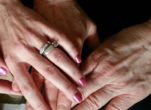
Grit — From Challenges To Success
After finding success as a writer, I knew that what I really wanted to do was to write and teach in academia. I’d been called “professor” for years, after all. At 33, I applied to graduate school. I was accepted to three programs, chose one with a fellowship, and moved to begin my M.A.
Things went well, and I completed the M.A. in only three semesters. I graduated in the top 10%, on the honours list. I was accepted to do a Ph.D. with a full fellowship. I was confident, happy, and excited about speeding through the Ph.D. and becoming a professor. I’d also recently married a wonderful man.
Soon, thoughts turned to babies, but there was pressure to choose between children and academia. I rejected this, and the idea that a woman who wants children isn’t “serious.” After some reflection, I applied to another university. I was asked to stay, and was told that I was a promising scholar, but I continued the transfer, automatically relinquishing my fellowship. I had no idea how I would fund my Ph.D.
Three weeks later, I was awarded a three-year government fellowship of a higher value. I thanked God. And within a month of that, I was pregnant. I thanked Her again.
All went well. I studied and worked as a course lecturer and teaching assistant. But toward the end of the pregnancy, I felt ill. Blood tests followed. My liver was failing. I was diagnosed with HELLP syndrome – a potentially deadly complication. An emergency c-section saved the baby and me from death. My liver was still damaged, and my blood pressure skyrocketed, leading to a hypertensive crisis. A pulmonary embolism was suspected and then ruled out. I was placed on several medications and was in hospital for nine days.
Recovery was slow. My liver wasn’t normalizing, and the medications caused extreme weight gain. I was thrilled to be a mother, but was exhausted and in pain. I took a few semesters off to heal, and for surgery. Over the next few years, despite exhaustion, I did well in my studies, continued to teach, and helped organize a conference. Pushing myself, I completed my qualifying exams in only a year. In early 2011, my thesis proposal was accepted. My fellowship had recently ended, but my husband was employed.
Suddenly, in May, 2011, my husband was laid off. It was a year of financial strain. I took a full-time job, working on my thesis evenings and weekends. My husband took care of our child while I wrote, but he soon became very ill, and I became caretaker to them both. Under medical care, he gradually improved, finally emerging from his illness in early 2012.
The year left us in debt. Our retirement savings were gone, save for a fund that was locked in for another two years. We both received job offers in another city and moved in 2012.
My “flex” time soon became a 60 hour a week schedule. On arriving home from work late in the evening, my thesis writing was less than fresh.
Then, our child was diagnosed with special needs. That alone calls for its own story. Perhaps I will tell it someday.
I feared that my studies would never recover. Worse, I felt I’d let people down. When I shared this with a friend, a tenured professor, she told me that I should be gentle with myself, as I’d accomplished much, that I had “grit” and never gave up, and that I should just move forward. That helped.
I negotiated my job departure in late 2013. I made the thesis my priority. There were bumps in the road, but I got back on track.
And now. My husband is working, our child receives special services, and I finally cashed that last retirement fund to support my writing. My health is nearly back to normal, medications are discontinued, and I’m beginning to slim down, though it will take time.
These events nearly derailed my studies, but I wouldn’t let them. When I question why I persevere, my answer is: This is the right career for me, and I’ve already come this far. In my 40s, I still have time to work in my field, so that is my goal. I’m writing daily, and will complete my thesis, whatever the cost.
My darling baby and I both survived HELLP syndrome, and I’m grateful. My life is a gift; this fuels my research and my love of life. What could be better than this?











0 comments to "Grit — From Challenges To Success"